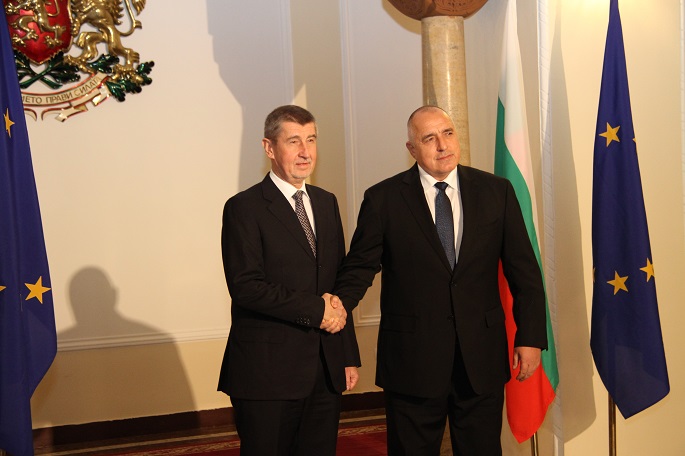Bulgaria, Czech for changing EU refugee acceptance rules
Published : 22 Jan 2018, 20:27
Updated : 23 Jan 2018, 00:45
Bulgarian Prime Minister Boyko Borissov and his visiting Czech counterpart Andrej Babis here on Monday said the European Union (EU) rules for receiving refugees are not effective and divide Europe.
At a joint press conference after bilateral talks, Babis said that Visegrad Group (Bulgaria, Hungary, Poland and Slovakia), as well as many other EU member states believed that the Dublin Regulation on asylum seekers and quota system for refugees were ineffective.
The decision about quotas is unacceptable, Babis said, "The EU should have a common view on solving the problems of migration."
His country relied on the Bulgaria's presidency of the Council of the EU this half-year to solve the issue, Babis added.
"The Dublin Regulation does not work the way we want, and it not only divides but literally splits Europe," Borissov said, adding a reasonable compromise should be found.
According to Borissov, refugees should enter the EU only through border checkpoints, and refugee protection centers should be built outside the EU in countries like Libya and Turkey.
The EU should take care of people fleeing war but needs to know when they would return to their homelands, Borissov noted.
The Bulgarian PM said he believed that EU countries would reach an agreement on this issue because "Europe is the best place to live, and we need to protect it."
According to the Dublin Regulation, refugees seeking asylum in European countries must do so in the first country they reach, and that member state is responsible for their resettlement.
In 2015, the EU adopted a refugee quota system, according to which Bulgaria committed to accept 1,302 individuals. However, in 2016 only three refugees wanted to stay in Bulgaria.


